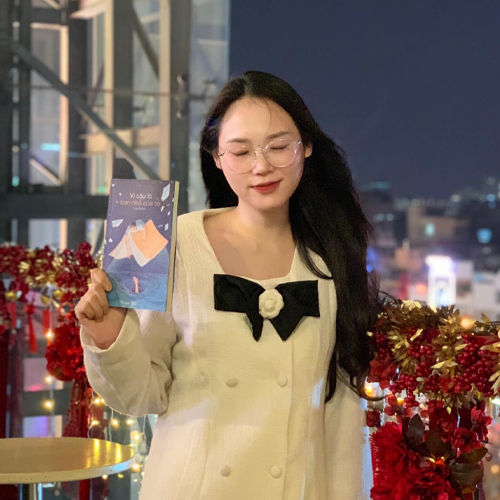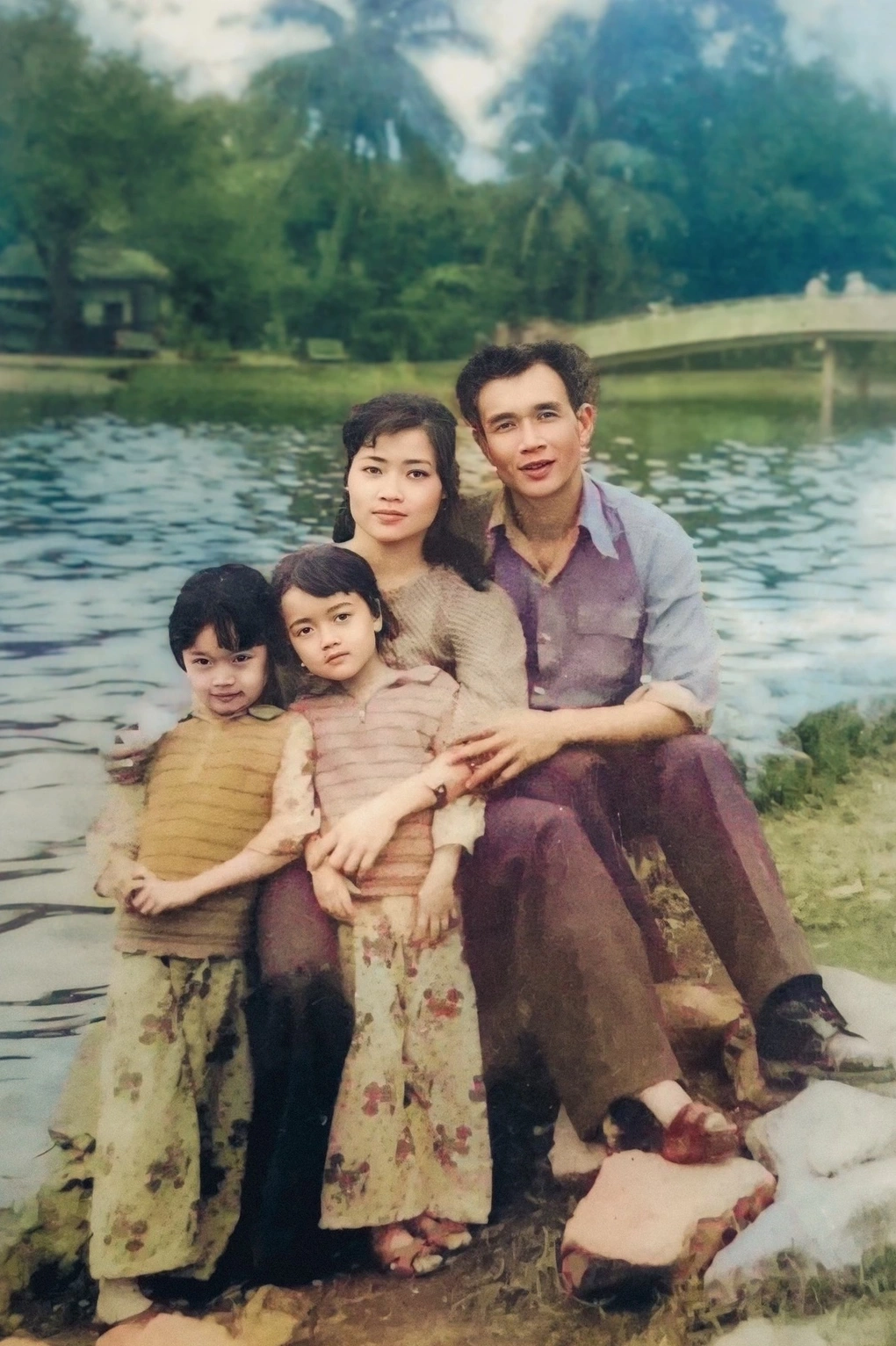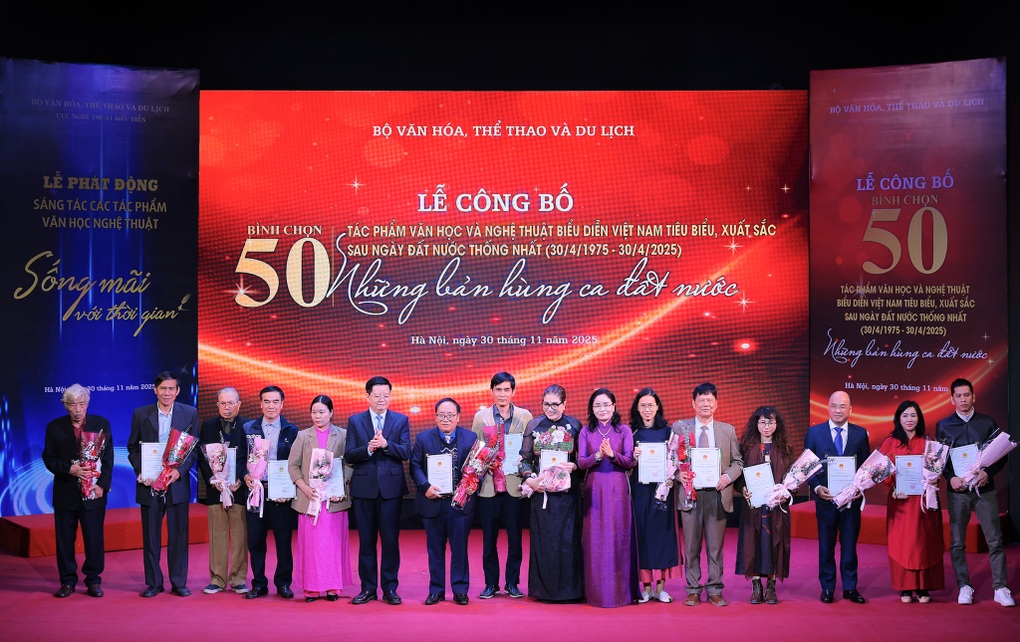Released in July 1973, 17th Parallel, 17 Days and Nights is one of the most iconic films of the Vietnamese revolutionary cinema during the resistance war against the United States. The film was directed by Hai Ninh, based on the screenplay by writer and playwright Hoang Tich Chi.
In the 1960s, while the war was escalating, director Hai Ninh and writer Hoang Tich Chi overcame many difficulties, riding bicycles through forests and crossing rivers to reach Vinh Linh - a region located right next to the demarcation line.
For 5 years of "working at night, resting during the day" to avoid bombings, the two artists together wrote a screenplay rich in humanity and epic qualities - 17th Parallel, 17 Days and Nights - considered to be one of the monuments of Vietnamese cinema.
The film truthfully and touchingly recorded the life, fighting spirit of the people on both sides of the demarcation line - something seemingly impossible in a divided country.
The film was awarded the World Peace Council Award at the 8th Moscow International Film Festival and won the Silver Lotus at the 2nd Vietnam Film Festival.
After more than half a century, the faces that contributed to the success of this classic film - some still living, some gone - but their legacy remains intact in the memories of audiences from many generations.
Meritorious Artist Tra Giang - the resilient, courageous Dịu
Meritorious Artist Tra Giang is a renowned name associated with many revolutionary films, including 17th Parallel, 17 Days and Nights.
In the film, she embodied the character Dịu - a woman whose husband joined the forces in the North. While staying behind in the hometown, Dịu not only took care of the family, prepared to welcome her newborn child, but also secretly led the revolutionary movement of the locals, resisting the brutal oppression of the enemies.
Despite facing arrests, detentions, and brutal torture, Dịu and the resilient people never wavered.
When Comrade Thuan - the Party Secretary - was assassinated by the enemy, Dịu took over to uphold the flames of struggle. With love for the homeland as the only "weapon", Sister Dịu became a symbol of courage, making the enemy fear her.
Meritorious Artist Tra Giang once shared that, despite starring in several movies before, she still felt the emotions of a young graduate. Witnessing the stories at the 17th parallel, she felt a deep love for the country inside her.
In a recent program called Cine - Vietnamese Film Memories, Tra Giang revealed that, to fully embody the character of Dịu, she met with the real-life prototype, Sister Hoang Thi Thao.
Tra Giang was told by Sister Thao - who was the Party Secretary and the Xa Doi team leader of Gio Ha - Gio Linh commune at the time - about the heartbreaking situation of her family.
Her father passed away, mother was shot by enemy troops, brother was exiled... yet Sister Thao still rose up, took up arms, and joined the guerrilla squad to participate in the revolutionary activities.
Hearing Sister Thao recount her life full of sacrifices and losses, Tra Giang couldn't hold back her tears. The image of that steadfast woman left a deep imprint in her memory and was a great source of inspiration for her to "live" with the character Dịu.
In the artist's memory, the filmmaking process was extremely fierce.
She recounted: "We filmed while living like soldiers on the battlefield, sometimes spending more time underground than on the surface."
Even after successfully shooting some scenes at the 17th parallel, due to the intense warfare situation, Meritorious Artist Tra Giang and the film crew had to move to Hanoi to complete the remaining scenes.
The realistic footage depicting the battles at the 17th parallel was highly praised by industry professionals. In 1973, at the Moscow International Film Festival, the film won the World Peace Council Award, and Meritorious Artist Tra Giang also had the honor of receiving the Outstanding Actress Award.
Despite being a distinguished figure in Vietnamese revolutionary cinema, Meritorious Artist Tra Giang bid farewell to the art world after participating in 17 films, leaving many regrets in the hearts of her beloved audience.
After retiring in 1998, Tra Giang returned to the Film School to pass on her acting experience to the next generation. Since retiring, she has found a new passion for painting.
For many years, "Sister Dịu" Tra Giang has lived alone in an apartment in Ho Chi Minh City, where she has her own space for activities and painting.
"Painting for me is also a form of meditation. And I see life as a child seeing for the first time, painting has the inherent innocence like children playing with colors...
I paint like breathing, like constant movement to discover the essence of the mind, to eliminate any lingering impurities. And that is also a method of meditation," Meritorious Artist Tra Giang shared with Dan Tri reporter.
Despite her advanced age, the graceful beauty of the Dịu character she once portrayed still lingers on the face of the seasoned actress - the beauty of the revolutionary film star of yesteryears.
The artist revealed that, even in her youth, she "burned" herself for her roles, and over the years, she has always missed her profession. At times, Tra Giang also wanted to accept offers to participate in a film, but due to her age, she had to set it aside.
Meritorious Artist Lam Toi as the memorable antagonist Tran Sung
Meritorious Artist Lam Toi's real name is Lam Thanh Tong, born in My Hoi village, Cao Lanh district, Sa Dec province, now My Hoi commune, Cao Lanh district, Dong Thap province.
Coming from a poor family, he early joined the revolution and later moved to the North, attending the first class of the Vietnam Film School along with Tra Giang, The Anh, Tran Phuong...
Graduating with excellence from the Film School in 1964, Lam Toi's first role was in the film Two Soldiers.
With diverse acting abilities, Lam Toi could convincingly portray both heroic and villainous roles.
The role of Tran Sung in 17th Parallel, 17 Days and Nights - a cruel and brutal character - is considered the biggest hallmark in his career. The role was so impressive that later, many called him "Tran Sung" in real life.
After the success of 17th Parallel, 17 Days and Nights, Lam Toi continued to leave a strong impression through roles in films such as Tám Quyện in Bitter season of chóng wind, Ba Đô in Wild field (both directed by Meritorious Artist Nguyen Hong Sen) or Lieutenant Can in For tomorrow (directed by Long Van)...
With his significant contributions to the national cinema, Meritorious Artist Lam Toi was awarded the title of Meritorious Artist by the State in 1997.
In 1999, he returned to the screen in the film Blood and Bone Dollars as a competent and talented director.
This was also his last role in his career. In 2000, Meritorious Artist Lam Toi passed away after a period of battling illness, leaving behind endless sorrow for colleagues and fans.
Meritorious Artist Doan Dung with the memorable role of the noteworthy People's Militia Ve
Meritorious Artist Doan Dung, real name Nguyen Anh Dung, was born in 1939 in Hanoi.
In 17th Parallel, 17 Days and Nights, the artist played Ve - a militia member - controlled by the ruthless villain Tran Sung. His character embodies helplessness, pain - a man lost amidst beatings and oppression.
Doan Dung portrayed the character with a bewildered look, a lighthearted tone, and a hidden desperation.
After 17th Parallel, 17 Days and Nights, he participated in many films and also left an impression: Hanoi's Child, The Unbuilt Wall, The Call Ahead, Father and Son...
In 1997, he was awarded the title of Meritorious Artist by the State. The role of Hai Du in the film The Green Grass was his last work. On September 17, 2018, Meritorious Artist Doan Dung passed away at Thong Nhat Hospital, ending a passionate and devoted artistic journey.


 Bảo My
Bảo My






